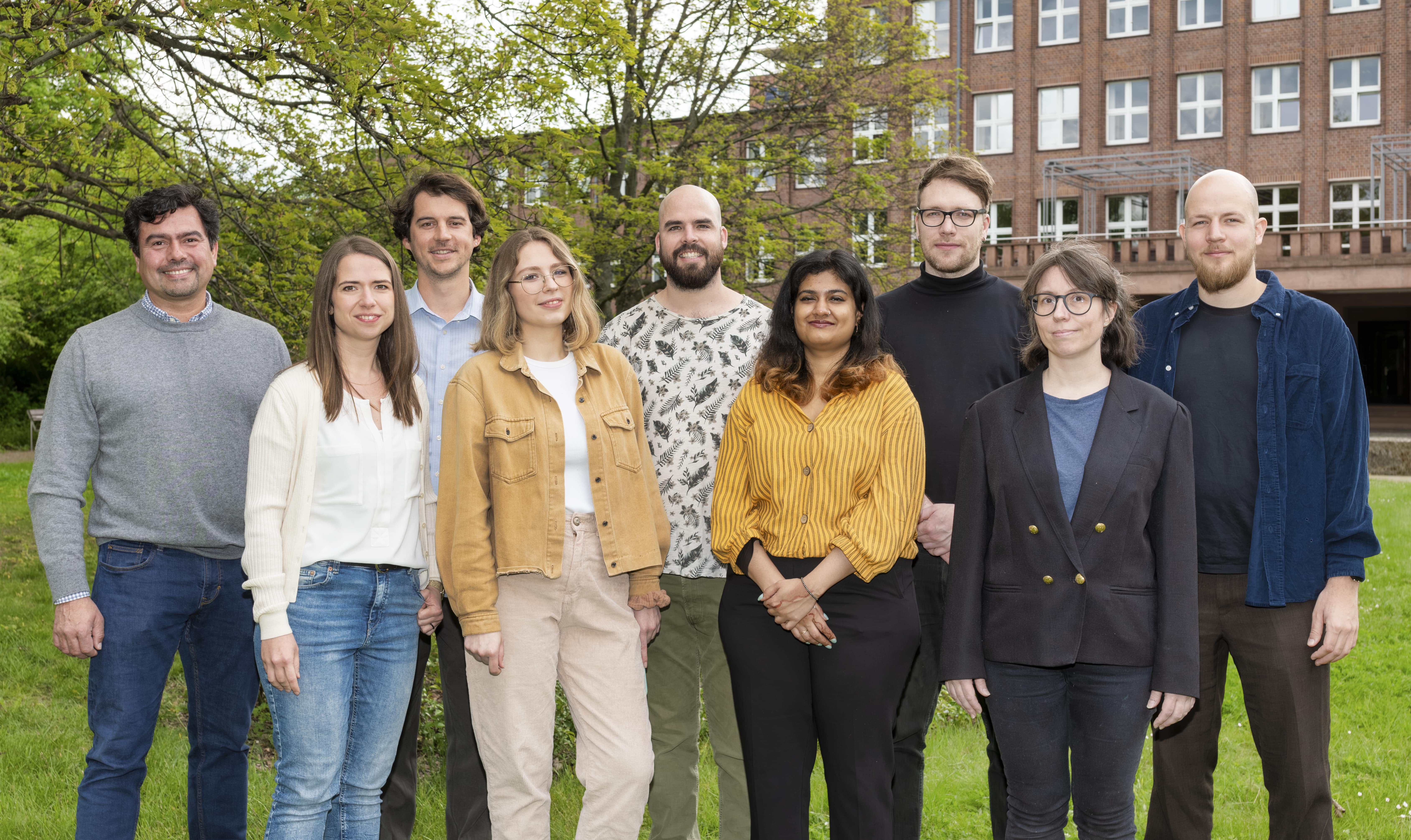
Former Research Group
System Analysis of the BioEconomy (SABE)
From the former SABE group emerged in 07/2025 the research groups ISAS (Integrated Sustainability Assessment of Societal Systems and Bioeconomy) and CARMA (Carbon Management). We are grateful to Prof. Dr. Alberto Bezama for his many years of leadership of the SABE Group.
Team:
Background
The goal of a “bioeconomy” is to advance the transition from an economy mainly using fossil-based raw materials to an economy based on the efficient and sustainable integration of various renewable resources (e.g. wind, water, solar, biomass).
Under the scope of the bioeconomy (BE), the efficient and sustainable use of biomass resources focuses on trans- and interdisciplinary research between agriculture, forestry and conversion and production technologies for the efficient coupling of biological and chemical synthesis processes for the production of energy and raw materials, with a particular focus on raw materials (e.g. plastics or petroleum substitutes). To strive for gains in technological efficiency it is absolutely necessary to develop further the BE, but alone it is not sufficient.
A societal and economic transformation entailing the BE is necessary. However, the increasing demands on biomass and land will require appropriate assessments in order to support well informed decision making and planning, both at regional (where biomass resources occur) and national (where major policies are decided), to ensure the most efficient and sustainable use of biomass resources, as well as to promote synergies with other renewable resources. Furthermore, institutional, legal and social determinants influence the development and outcome of the BE by consolidating path dependencies or on the contrary by triggering change and therefore are part of the system analysis.
In this context, the working group “System Analysis of the Bioeconomy” (SABE) at the Department of Bioenergy intends to support this transition towards a bio-based economy by understanding and evaluating the BE system under a life cycle perspective. The work is done at various geographical scales (global, national, regional), in order to evaluate the potential social, economic and ecological impacts of new strategies and technologies when implemented on a region, thus providing a sound information basis for regional and national decision makers.
The SABE group
The SABE group was founded in 2015, stemming from initiatives within the Department of Bioenergy to advance life cycle assessment and management. Initially, our focus was on developing a regionalized life cycle assessment model to better understand the environmental impacts of sectors related to bioenergy and later, the broader bioeconomy. This effort led to the creation of the RELCA model.
Additionally, we concentrated on crafting life cycle-based management tools. SUMINISTRO emerged as a multi-criteria decision support tool tailored for regional planners, particularly addressing the needs of Central Germany. RESPONSA aimed to pinpoint socio-economic hotspots and opportunities within the region when implementing bio-based technologies. Subsequently, both SUMINISTRO and RESPONSA served as the foundation for HILCSA, a novel life cycle sustainability assessment model. HILCSA offers a comprehensive analysis, considering sustainability's holistic and integrated dimensions, shedding light on synergies, trade-offs, and production/consumption hotspots in the bioeconomy.
Our uniqueness lies on our focus on regional life cycle oriented approaches, using and developing complementary models with different scopes, and levels of detail (i.e. a LCM toolbox) to deliver a systematic analysis of the bioeconomy.
Our goals:
- understanding and evaluating the bioeconomy system under a life cycle perspective
- evaluate the potential social, economic and ecological impacts of new strategies and technologies
- providing a sound information basis for regional and national decision makers
- discuss concepts of (circular) bioeconomy with a view to sustainability as a rule for (regional) decisions
- providing effective modelling tools to conduct environmental or social life cycle assessment under the regional context
- knowledge sharing and transfering with stakehoders for sustainable bioeconomy management
Our models and tools:
HILCSA (Holistic and integrated Sustainability Assessment)
RELCA (LCA for Regional Bioenergy systems)
Our projects:
BioNET – Multi-level Assessment of Bio-based Negative Emission Technologies
Internal Collaboration Activities at UFZ - Bridging Social Sciences and Engineering
KEK Monitoring − Status monitoring of the climate and energy concept of the state of Saxony-Anhalt
SYMOBIO 2.0 − Consolidating Systemic Monitoring and Modelling of the Bioeconomy
VALUE4FARM – Sustainable renewable energy VALUE chains for answering FARMers’ needs
Our past projects:
BioEconomy Cluster - Accompanying research [only in german]
BRANCHES − Boosting Rural Bioeconomy Networks following multi-actor approaches
Establishment of the Bioenergy Department (IVF) [only in german]
HI-CAM (Helmholtz Klimainitiative)
Portfolio Project "Sustainable Bioeconomy" [only in german]
SYMOBIO − Systemic Monitoring and Modelling of the Bioeconomy
VARECSI − Validation of the RESPONSA method through selected regional case studies
Related links:
Bioeconomy Council ("Bioökonomierat")
DKN Working Group: Sustainable, transformative and circular Bioeconomy
Paper "Management der Bioökonomie“ (PDF)
